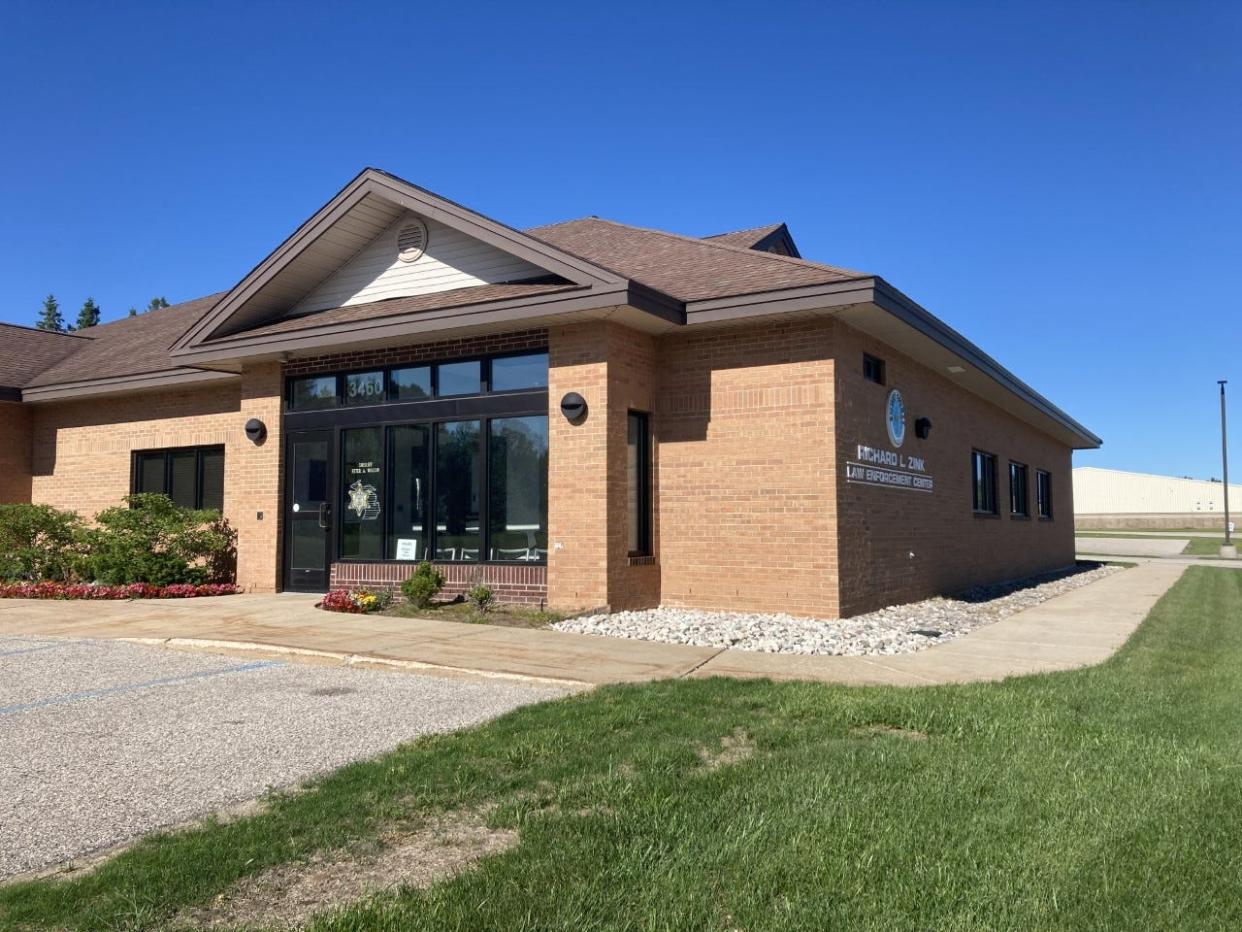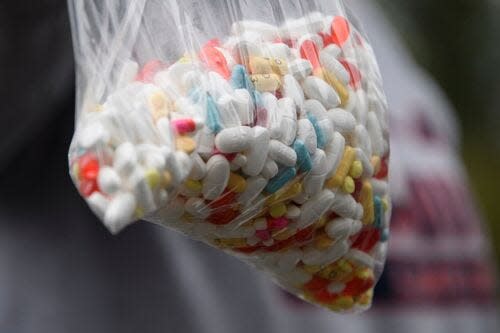Officials warn 'cocktail' of drugs ends up in waterways. Here's how to dispose of them properly

Prescription medications have become a normal part of everyday life for many people. While these medications improve the quality of life for those that are prescribed them, when not properly disposed of, they are creating a “cocktail” of medications in Michigan’s water supply.
A common misconception is that medications that are no longer needed can be flushed down the toilet, but water infrastructure like sewers and septic systems are not designed to treat the chemicals that are found in pharmaceuticals.
According to Jennifer McKay, policy director for Tip of the Mitt Watershed Council, more than 80 percent of the waterways tested in the United States had trace amounts of common medications like hormones, blood pressure medication, codeine and antibiotics.
The chemicals in these medications are making it into bodies of water where they are ingested by fish and cause problems with reproduction and development. Medications are even making their way into drinking water supplies.
More: Gaylord police unveil collection box for expired, unwanted medications
More: Medication take-back event prevents drugs from polluting Northern Michigan’s waters
“The primary way it affects those people that are being exposed to them would be by eating the fish and by drinking the water. At this point in time, there's just trace amounts of the pharmaceutical medications, however, it's a cocktail of medications. You can be ingesting a mixture of all sorts of medications that were never designed for you to be taking and we don't necessarily know all the impacts,” McKay said.
“While it's in small quantities, it's also a mixture and how drugs interact with one another, even in small quantities we don't necessarily know how that can be harmful. Again, you're seeing impacts in the aquatic species with developmental problems and reproduction problems. And so the question is, are we harming ourselves by drinking the same thing, or by consuming the fish?”
In order to lower the amount of medications making its way into the water supply, Tip of the Mitt worked with the Little Traverse Bay Bands of Odawa Indians to investigate how to address the issue and created the Prescription and Over-the-counter Drug (POD) drop-off program in 2008.
Tip of the Mitt is still heavily involved in the POD program and has worked to expand it throughout Northern Michigan, now with many other community partners.
“To date, we have collected approximately 65,000 pounds of unwanted and unused medications, which means that is medications that are not entering our waterways and that is medication that are no longer on the streets for sale and medication that is no longer available at homes for potential overdose or misuse. So it's made a huge difference in Northern Michigan's environment, as well as our community,” McKay said.
There are a total of 20 POD drop-off boxes in county offices and law enforcement buildings across Emmet, Charlevoix, Cheboygan, Antrim, Grand Traverse and Mackinac counties. A full list of the locations is available on the Pills in the Pod website.
“We get calls all the time about (drug drop-off boxes). It's daily, people are coming in and especially into our main office, disposing of prescription medications,” Emmet County Sheriff Pete Wallin said.
“A lot of that stuff is controlled substances, prescription wise. We just don't want it to fall on the hands of people that would abuse this. So, the proper way to dispose of it, instead of throw it in the trash or flush it down the toilet, (POD drop-off boxes) is the proper way to do it safely.”
Throwing medications in the trash is not a viable option either, as they can be picked up by someone looking to abuse them or end up in a landfill, where the chemicals from the medication will likely end up in the water supply anyway.

More: Anonymous no more, Harbor Hall is expanding to include workforce apartments
More: More: Subscribe: Check out our offers and read the local news that matters to you
One of the few issues the POD program has run into is people using them to dispose of prescription needles, like those used for insulin injections. For the staff that empties the POD boxes, this can cause a serious health hazard.
In order to dispose of needles, they should be placed in an approved, hard, plastic container and brought to a McLaren Northern Michigan free needle drop-off event. To find out the date and location of the next event, call (800) 248-6777.
A full list of what is and isn’t accepted in the POD boxes and how to prepare the items for disposal is available at the Pills in the Pod website. Medications should be kept in the original bottle with the drug name visible so it can be properly sorted. However, all personal information like name, address and prescriber should be blacked out.
“It's a great program,” McKay said. “That is, it's been running smoothly and it's been accepted widely by a number of community partners, from Emmet County Recycling to the hospital to the health department, all of law enforcement. So it's a great community program that is working quite well and we're very proud of it.”
While Chippewa and Otsego counties are not part of the POD program, they do have their own drug drop-off programs. Locations in Chippewa County can be found on the county website. In Otsego County, Munson Healthcare has drop-off sites at multiple hospitals, the list of locations is available on its website.
Contact reporter Tess Ware at tware@petoskeynews.com. Follow her on Twitter, @Tess_Petoskey
This article originally appeared on The Petoskey News-Review: Improperly disposed of drugs often find their way into waterways

